Concawe Review
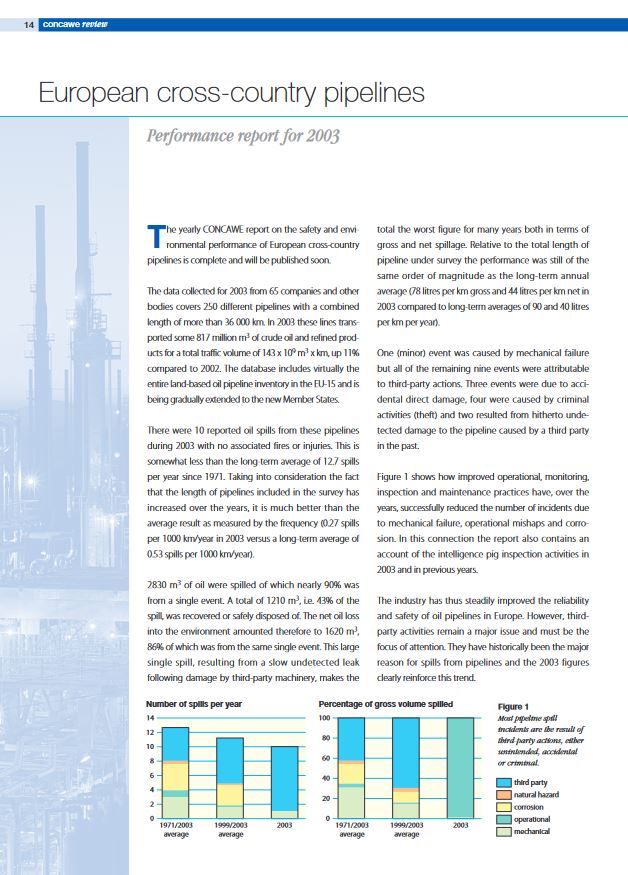
Concawe Reviews
European cross-country pipelines
The yearly CONCAWE report on the safety and environmental performance of European cross-country pipelines is complete and will be published soon.
The data collected for 2003 from 65 companies and o...

Concawe Reviews
CONCAWE Review – Spring 2005
Volume 14, issue 1: ERTRAC was established in 2002 as an ‘Advisory Council’ with a view to improving European research in the road transport sector. Its first objectives were to develop a shared V...
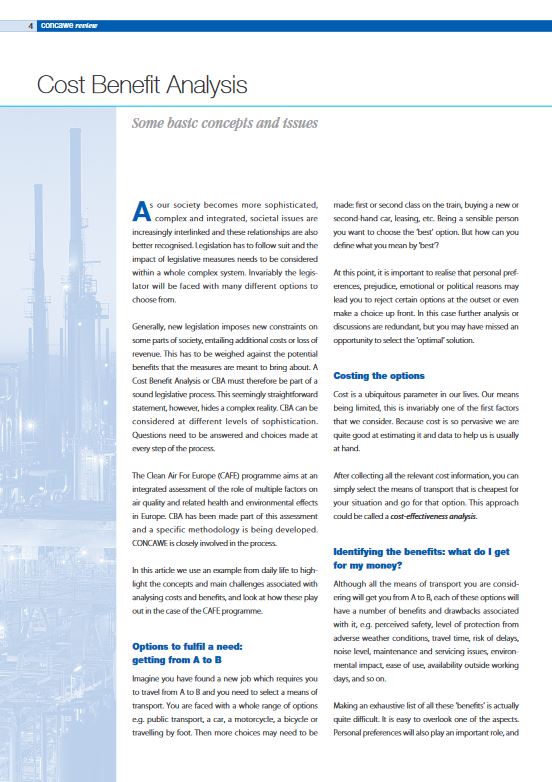
Concawe Reviews
Cost Benefit Analysis
As our society becomes more sophisticated, complex and integrated, societal issues are increasingly interlinked and these relationships are also better recognised.
Legislation has to follow suit...
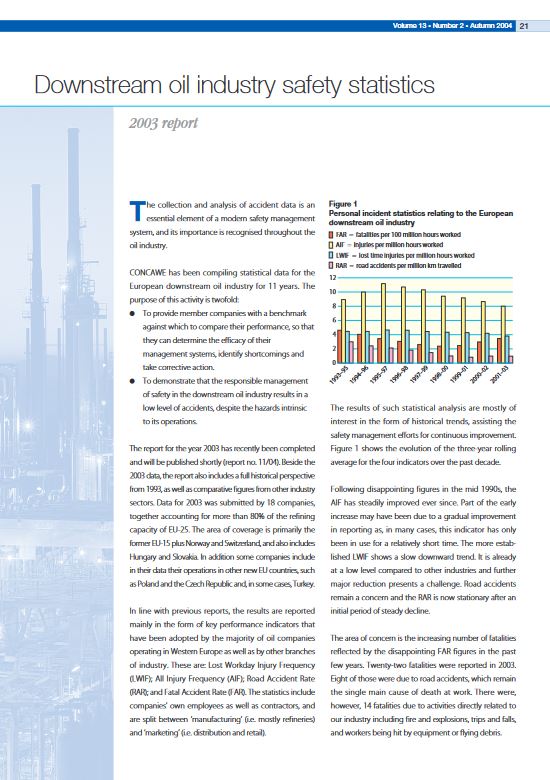
Concawe Reviews
Downstream oil industry safety statistics
The collection and analysis of accident data is an essential element of a modern safety management system, and its importance is recognised throughout the oil industry. CONCAWE has been compiling stat...
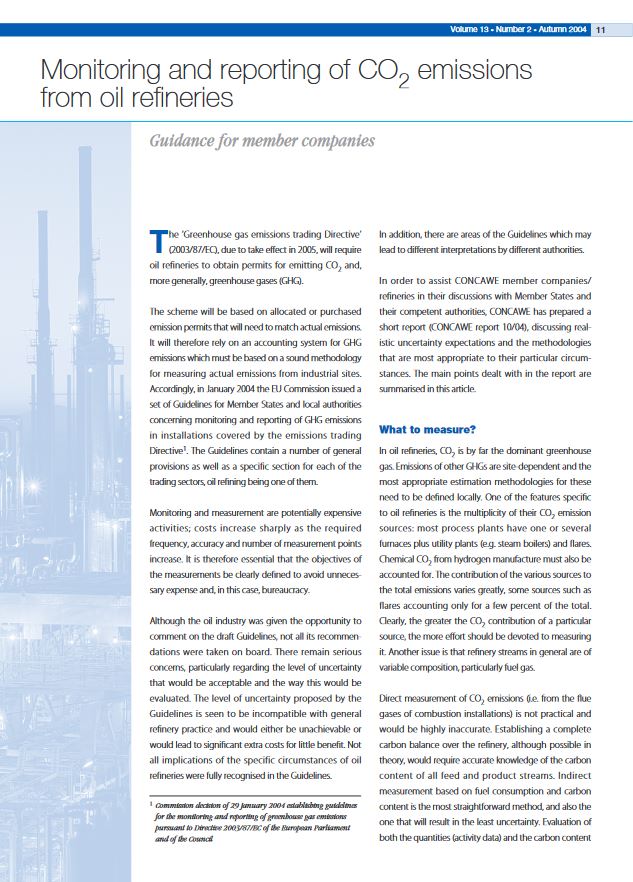
Concawe Reviews
Monitoring and reporting of CO2 emissions from oil refineries
The ‘Greenhouse gas emissions trading Directive’ (2003/87/EC), due to take effect in 2005, will require oil refineries to obtain permits for emitting CO2 and, more generally, greenhouse gases (GHG...
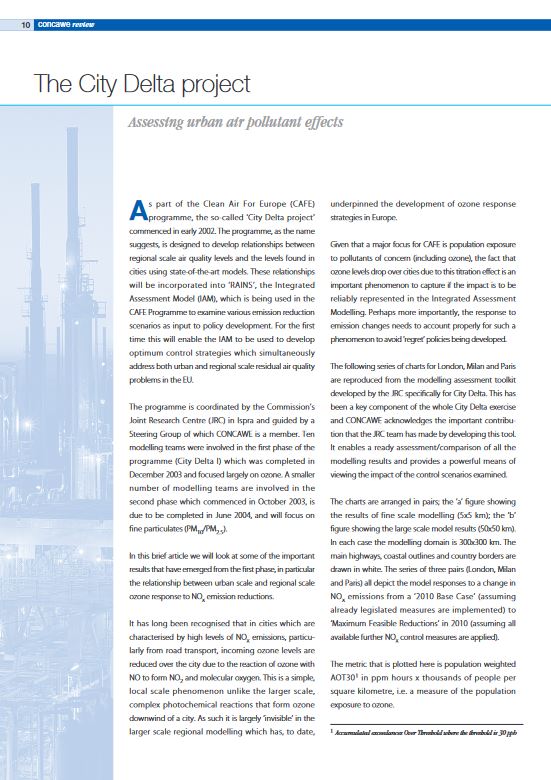
Concawe Reviews
The City Delta project
As part of the Clean Air For Europe (CAFE) programme, the so-called ‘City Delta project’ commenced in early 2002. The programme, as the name suggests, is designed to develop relationships betwe...
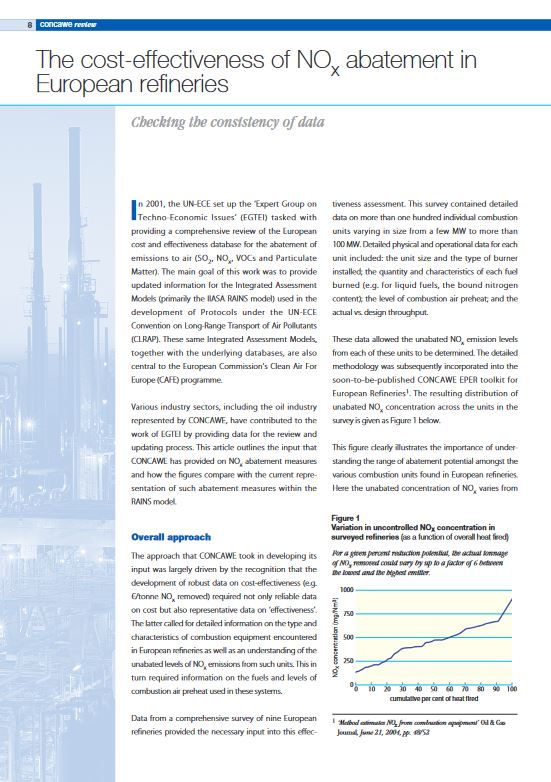
Concawe Reviews
The cost-effectiveness of NOx abatement in European refineries
In 2001, the UN-ECE set up the ‘Expert Group on Techno-Economic Issues’ (EGTEI) tasked with providing a comprehensive review of the European cost and effectiveness database for the abatement of...

Concawe Reviews
CONCAWE Review – Autumn 2004
Volume 13, issue no. 2: At the end of this year, Jean Castelein will leave CONCAWE as he reaches his well earned retirement from formal business life. Jean joined CONCAWE in December 2000 and has pres...
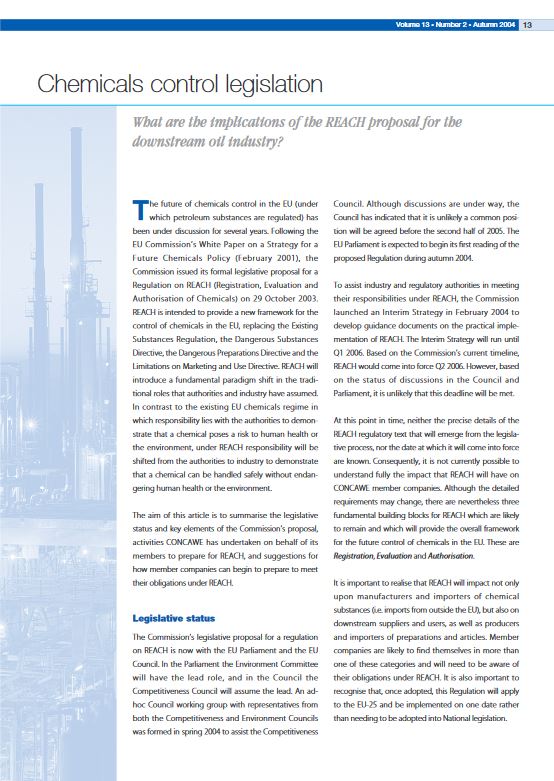
Concawe Reviews
Chemicals control legislation
The future of chemicals control in the EU (under which petroleum substances are regulated) has been under discussion for several years. Following the EU Commission’s White Paper on a Strategy for...
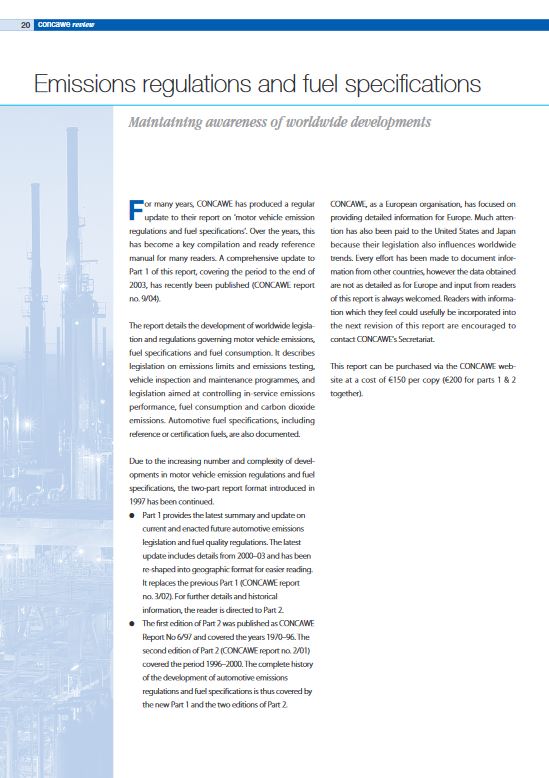
Concawe Reviews
Emissions regulations and fuel specifications
For many years, CONCAWE has produced a regular update to their report on ‘motor vehicle emission regulations and fuel specifications’. Over the years, this has become a key compilation and read...
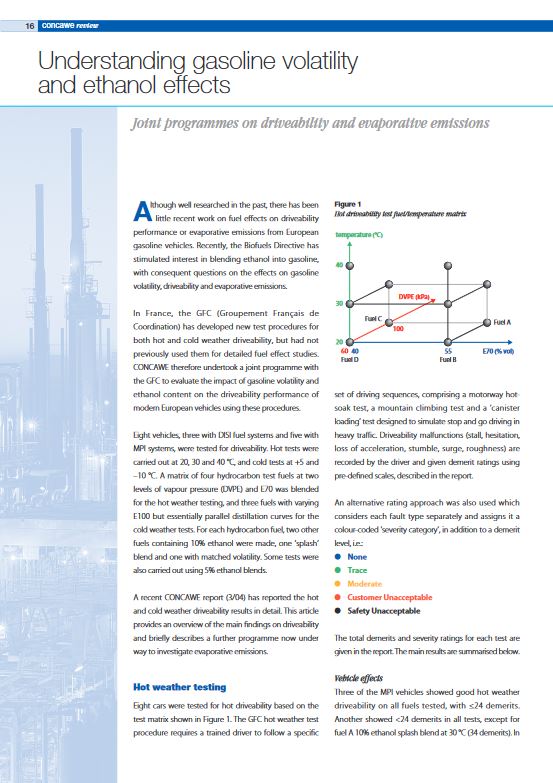
Concawe Reviews
Understanding gasoline volatility and ethanol effects
Although well researched in the past, there has been little recent work on fuel effects on driveability performance or evaporative emissions from European gasoline vehicles.
Recently, the Biofue...

Concawe Reviews
CONCAWE Review • Spring 2004
Volume 13, issue no. 1: CONservation of Clean Air and Water in Europe was CONCAWE’s original ‘raison d’être’ and gave the association its name. Water quality issues have been less in focus in...
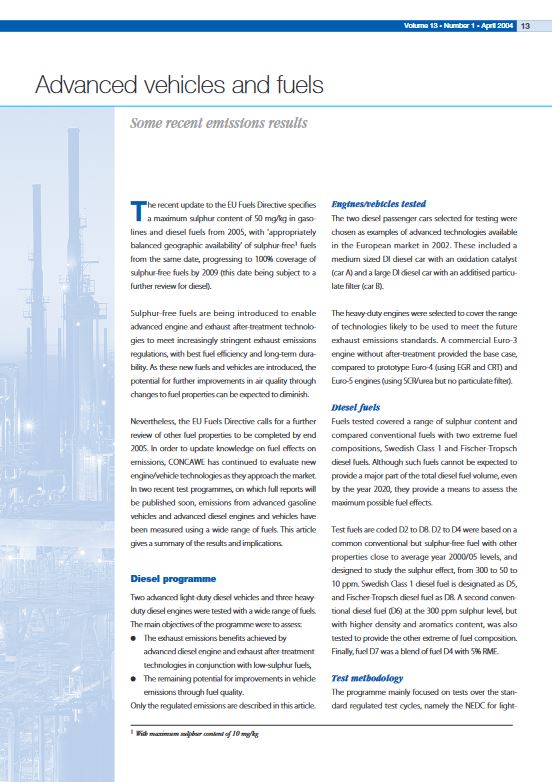
Concawe Reviews
Advanced vehicles and fuels
The recent update to the EU Fuels Directive specifies a maximum sulphur content of 50 mg/kg in gasolines and diesel fuels from 2005, with ‘appropriately balanced geographic availability’ of sulphu...
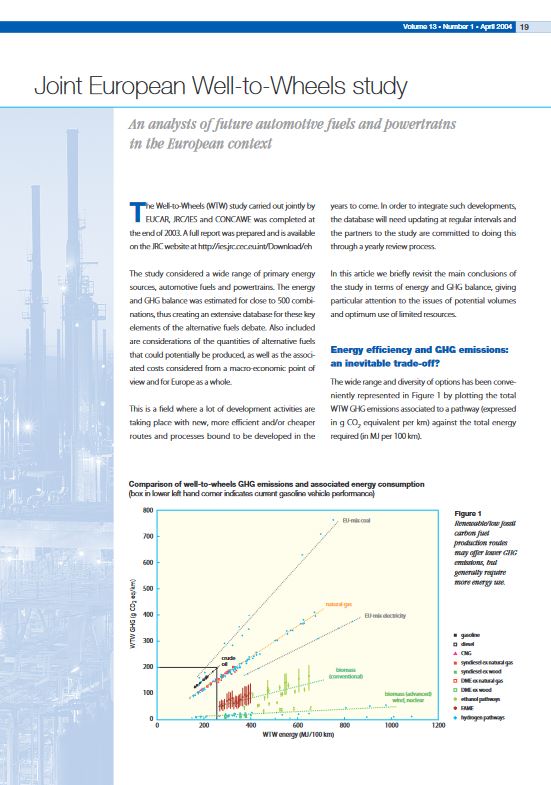
Concawe Reviews
Joint European Well-to-Wheels study
The Well-to-Wheels (WTW) study carried out jointly by EUCAR, JRC/IES and CONCAWE was completed at the end of 2003. The study considered a wide range of primary energy sources, automotive fuels and pow...
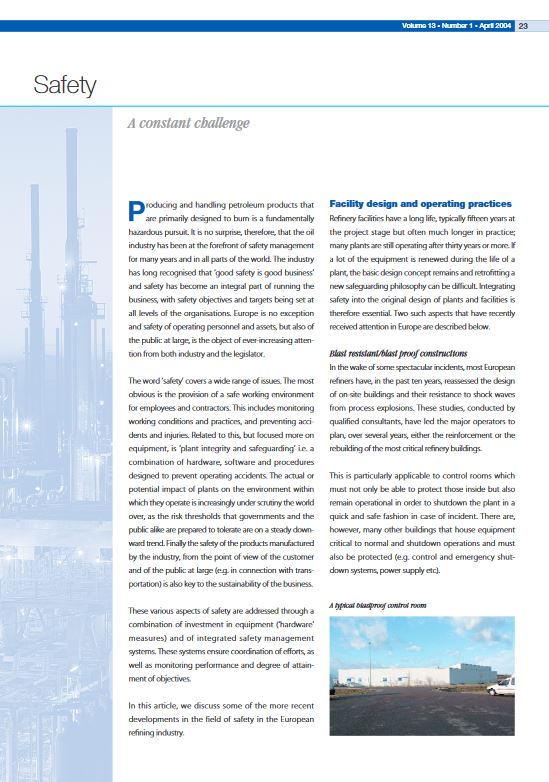
Concawe Reviews
Safety
Producing and handling petroleum products that are primarily designed to burn is a fundamentally hazardous pursuit. It is no surprise, therefore, that the oil industry has been at the forefront of...
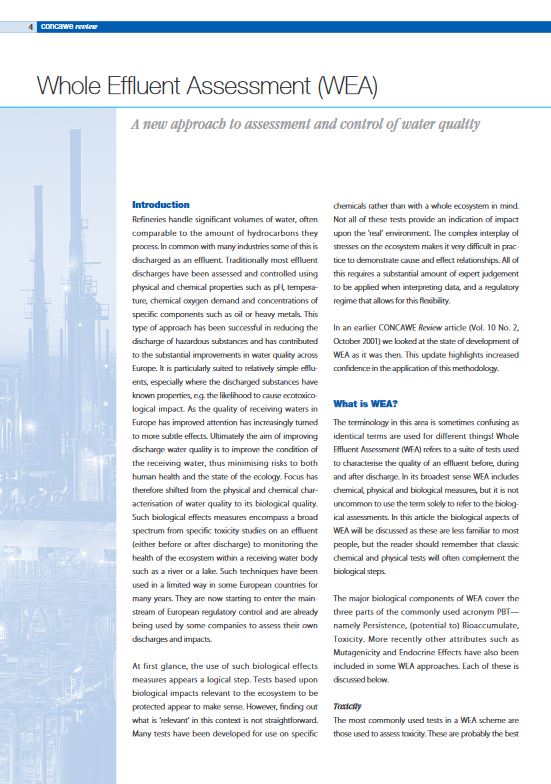
Concawe Reviews
Whole Effluent Assessment (WEA)
Introduction Refineries handle significant volumes of water, often comparable to the amount of hydrocarbons they process. In common with many industries some of this is discharged as an effluent.
T...

Concawe Reviews
Celebrating 40 years of CONCAWE
Volume 12 • Number 2: It is now 40 years since a small group of leading oil companies decided to pool their resources and expertise to deal with the emerging environmental issues associated with oil...
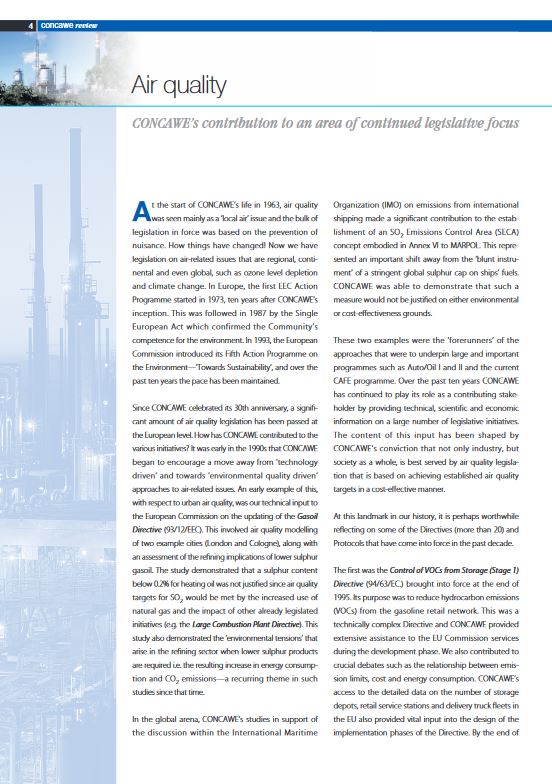
Concawe Reviews
Air quality
At the start of CONCAWE’s life in 1963, air quality was seen mainly as a ‘local air’ issue and the bulk of legislation in force was based on the prevention of nuisance. How things have change...
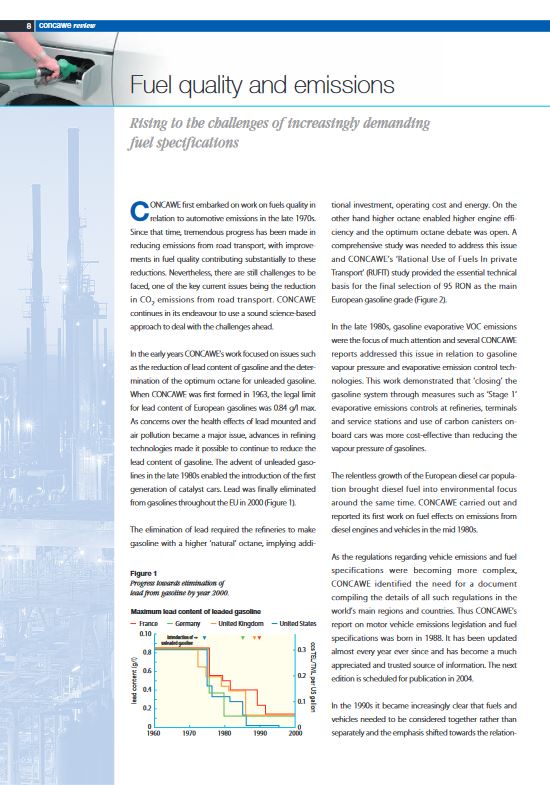
Concawe Reviews
Fuel quality and emissions
CONCAWE first embarked on work on fuels quality in relation to automotive emissions in the late 1970s.Since that time, tremendous progress has been made in reducing emissions from road transport, with...
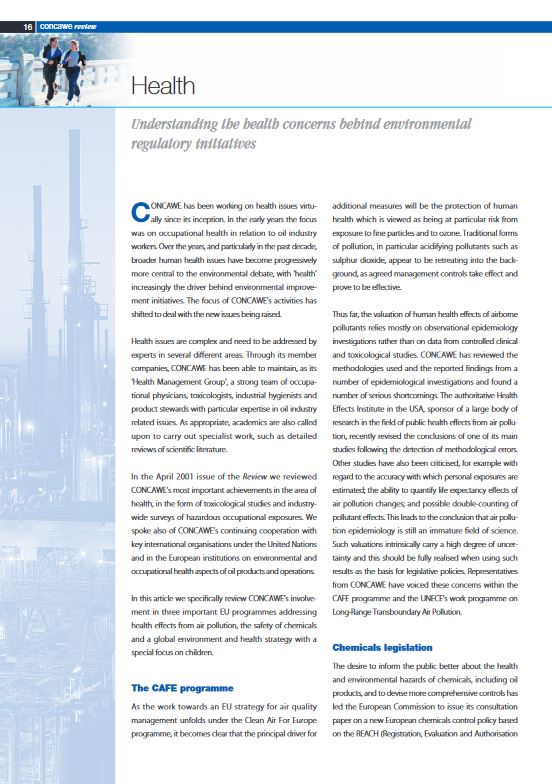
Concawe Reviews
Health
CONCAWE has been working on health issues virtually since its inception. In the early years the focus was on occupational health in relation to oil industry workers.
Over the years, and particul...
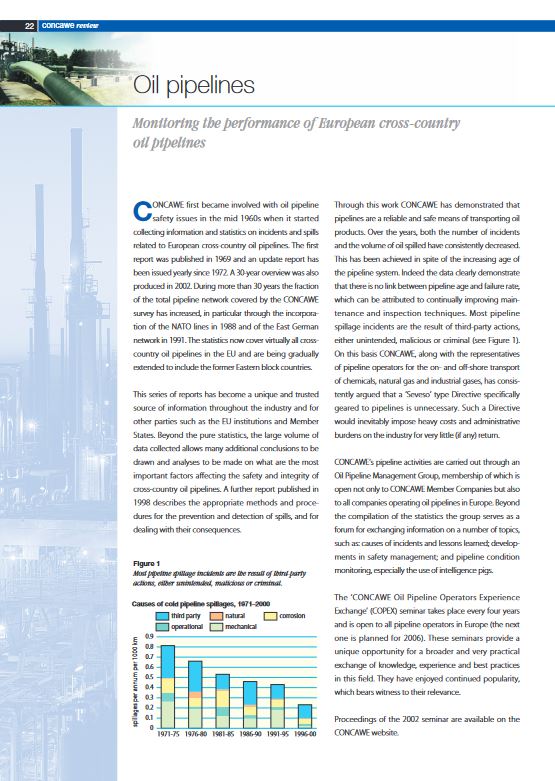
Concawe Reviews
Oil pipelines
CONCAWE first became involved with oil pipeline safety issues in the mid 1960s when it started collecting information and statistics on incidents and spills related to European cross-country oil pi...
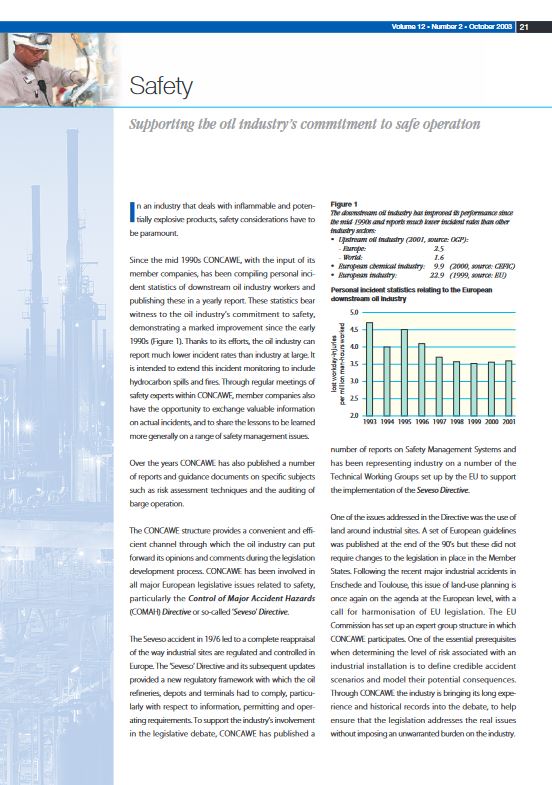
Concawe Reviews
Safety
In an industry that deals with inflammable and potentially explosive products, safety considerations have to be paramount. Since the mid 1990s CONCAWE, with the input of its member companies, has b...
Concawe Reviews
Water and waste
Water is an essential resource that has, over the years, come progressively higher on the international agenda because of its intimate relationship with both human health and ecosystem development....

Concawe Reviews
CONCAWE Review – Spring 2003
Volume 12 • Number 1: With Europe at the forefront of the ratification of the Kyoto protocol, CO2 and, more generally, greenhouse gases (GHG) are now definitely in the limelight and will be a ce...